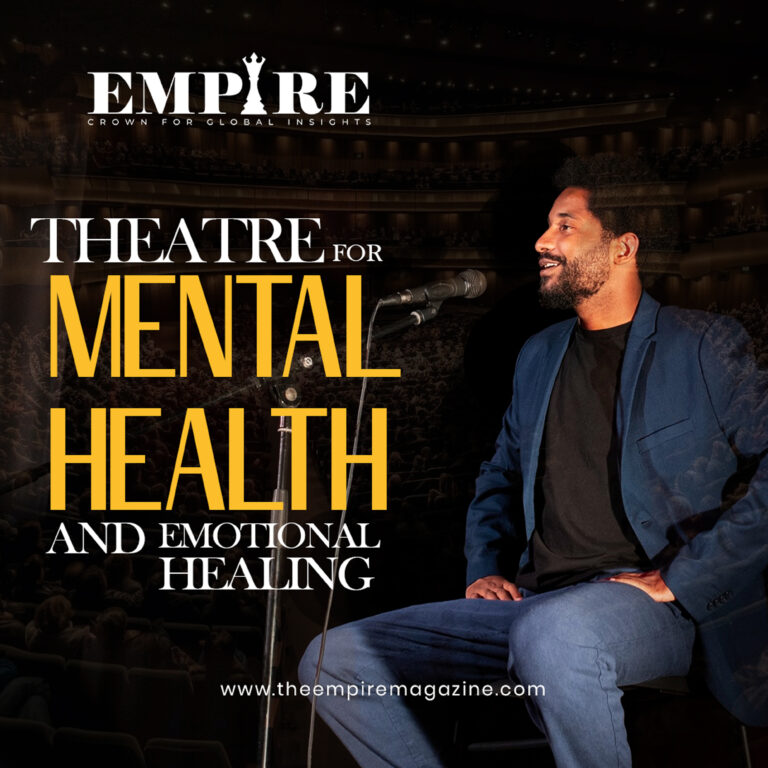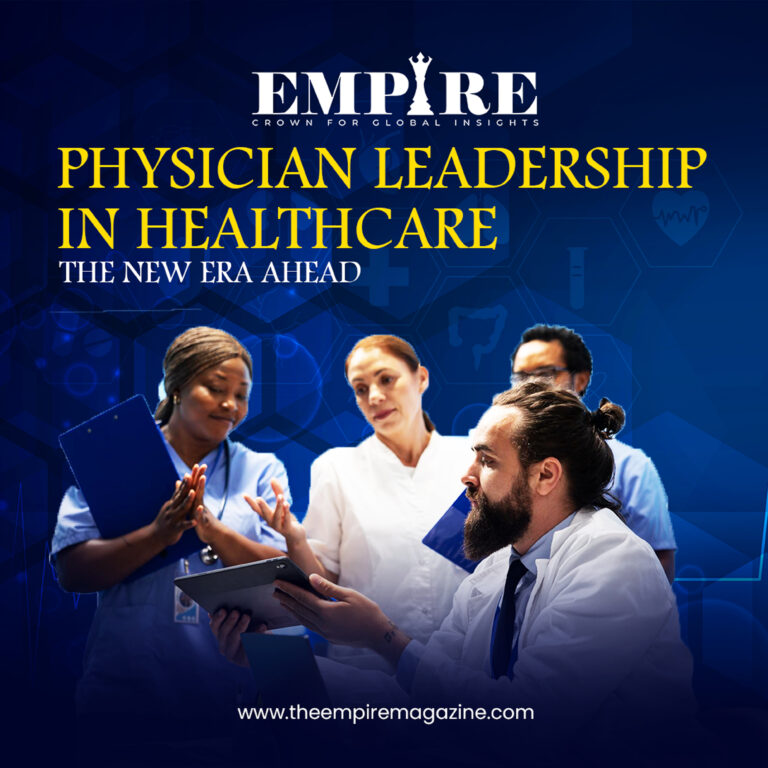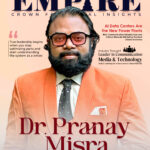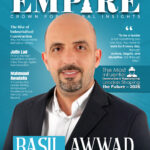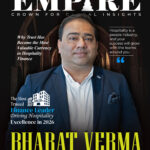Dr. Alaa Abd-Elsayed: A Visionary Leader in Global Healthcare and Pain Medicine
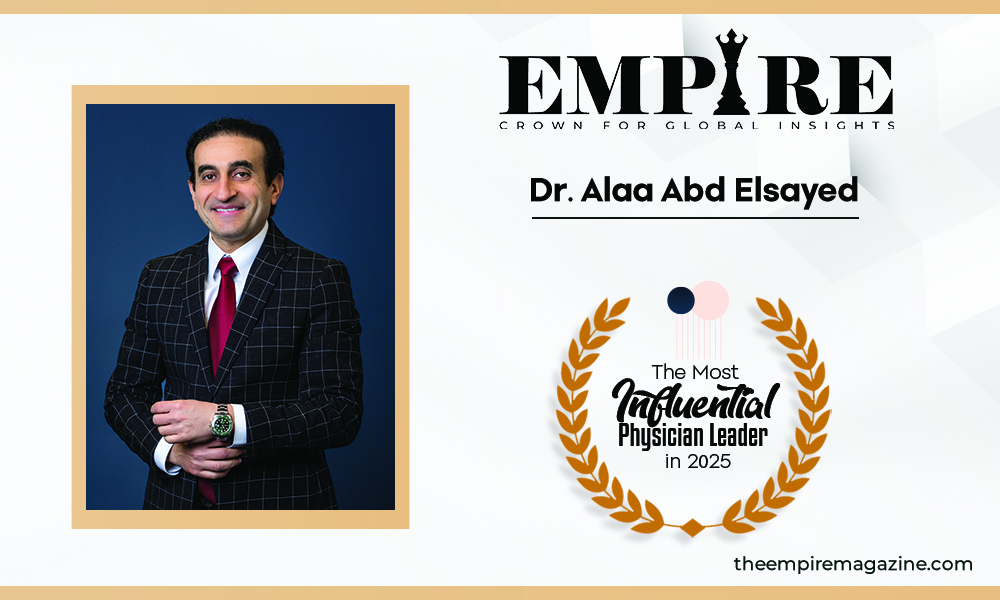
In the fast-paced environment of healthcare, there are not many who succeed in creating a legacy that cuts across borders, impacts systems, and enhances lives on a worldwide scale. Dr. Alaa is one of those leaders whose medical career has been defined by an unrelenting pursuit of excellence and a passion for enhancing patient care globally. From modest origins in rural Egypt to becoming a revolutionary force in pain medicine and anesthesiology, Dr. Alaa’s career is a testament to the strength of passion, perseverance, and innovation.
The Beginning of a Lifelong Passion
Dr. Alaa’s journey to becoming a doctor was largely shaped by his mother, a doctor who worked in rural Egypt, who also performed charity work in church every week by treating patients for free at the church medical clinic. “I was a child, and I would see my mother’s practice in medicine taking care of farmers and poor communities,” he remembers. “She was enabling people to lead better lives.” This early experience with healthcare ignited a love of medicine in Dr. Alaa, one that would shape his professional life.
At first, his aspirations were based on serving his community. “I wanted to practice medicine and change people’s lives,” he explains. Later on, though, Dr. Alaa’s vision widened. He envisioned not only practicing at home but also making an impact on the world by becoming a healthcare systems leader around the globe. “I wanted to have an impact beyond just local.”. I wanted to work in the United States, spread knowledge worldwide, and enhance patient care to a much broader extent,” he says.
This passion to create a positive impact in the world prompted Dr. Alaa to acquire an impressive set of qualifications, which include an MD, MBA, MPH, CPE, FASA, and FASIPP. Each of these degrees and certifications was a distinct aspect of his changing vision. The MD gave him the clinical background, the MBA refined his leadership and business acumen, the MPH enhanced his knowledge of public health and research, while the CPE concentrated on creating thoughtful, executive-level leadership.
A Multifaceted Approach to Leadership
Dr. Alaa’s leadership has been shaped by his rich variety of academic and professional backgrounds. Every qualification significantly contributed to determining his leadership direction in healthcare. “The MD was essential it gave me clinical knowledge and know-how that I apply daily in caring for my patients,” he indicates. “The MBA, though, taught me how to drive teams, to manage resources, and to confront the intricacies of healthcare establishments.”. The MPH was necessary in broadening my knowledge of population health, and the CPE program was priceless in developing my leadership skills.”
Dr. Alaa’s diverse educational experience has enabled him to tackle healthcare issues from all sides. Consequently, he has been able to lead personnel, shape healthcare policy, and implement systemic reforms in ways that many clinicians exclusively devoted to medicine cannot. This three-dimensional view has enabled him to be a forceful voice in developing healthcare systems, especially in pain medicine and anesthesiology.
Transforming Pain Medicine
As a pain medicine and anesthesiology leader, Dr. Alaa has been at the forefront of numerous changes in the field. Pain management has changed over the last decade. Dr. Alaa notes, “The field has changed dramatically, especially with the advent of new technologies, shifts in reimbursement models, and the growing incidence of rare, complicated conditions.”
These shifts, in combination with a population that’s growing older and increasingly demanding higher-quality-of-life care, have necessitated fast adaptation on the part of healthcare providers. “Pain control is no longer simply symptom reduction,” Dr. Alaa comments. “It’s about enhancing patients’ overall quality of life, particularly as they battle chronic conditions or prolonged pain.
As a response to these changes, Dr. Alaa has spearheaded several initiatives to meet the increasing demand for more holistic, patient-driven care. “I’ve always felt that ongoing education and innovation are the way to give the best care,” he explains. “Whether it’s keeping current with the most recent research or adopting new technology, we must stay nimble in an evolving healthcare system.”
One of Dr. Alaa’s significant contributions has been developing a comprehensive pain management program in the United States. This program addresses the physical aspects of pain and considers the psychological and social factors that impact a patient’s well-being. “I’m proud of this program because it has created tangible improvements in the lives of countless patients,” he states. But it’s also had a ripple effect worldwide, impacting how pain management is done globally.
Leading with Integrity and Compassion
At the center of Dr. Abe-Elsayed’s leadership philosophy is his belief in servant leadership a leadership style that focuses on the welfare of others over personal interests. “I believe in leading by example,” he says. “Being transparent, honest, and establishing a culture of trust within my teams has been vital to our success.” This has enabled Dr. Alaa to lead teams, effect positive change, and establish long-term relationships with colleagues and patients.
Dr. Alaa also emphasizes the importance of empathy and emotional intelligence in leadership. “Healthcare is fundamentally about people,” he explains. “Whether working with patients or leading a team, understanding and responding to people’s needs is key.” This philosophy has guided Dr. Alaa in his role as a clinician and an educator. He is also enthusiastic about developing the next generation of physician leaders, imparting the technical know-how to prosper and the emotional intelligence to survive the healthcare challenges.
Overcoming the Challenges of Healthcare Leadership
The health care sector is confronted with many challenges in the contemporary era increasing costs, rising demand for services, and the complexity of patient care. As a medical leader, Dr. Abd-Elsayed has learned to navigate these challenges while ensuring that care is still of high quality. “One of the biggest challenges that health care leaders have nowadays is the ever-changing reimbursement environment,” he notes. “The rules keep evolving, and we must be ahead of these changes.
Besides reimbursement, Dr. Abd-Elsayed indicates the difficulties in aligning new technologies with healthcare systems. “Technology is developing at a fast pace, but it’s essential that we apply it to support the care we offer and not substitute human judgment and compassion,” he says. As a champion of technological advancement, Dr. Alaa is actively engaged in research on the potential of artificial intelligence (AI) in pain medicine and medicine in general.
Adapting to a Post-Pandemic World
The COVID-19 pandemic has underscored the need for healthcare leaders to be adaptable, resilient, and capable of managing complex, high-stress situations. Dr. Alaa believes that the post-pandemic world will require healthcare leaders to develop new skill sets. “The pandemic has shown us that healthcare leaders need to be more versatile,” he says. “They must understand clinical care, business strategy, and crisis management.”
Dr. Alaa emphasizes that post-pandemic leadership will call for a mind shift. “The healthcare culture has shifted, and leaders need to adjust to that,” he adds. “Communication, empathy, and flexibility will be more critical than ever.” This attitude manifests Dr. Alaa’s keen insight into the changing dynamics of healthcare and his capacity to adjust to emerging challenges while staying patient-centric.
Mentoring the Next Generation of Leaders
Dr. Alaa is strongly dedicated to mentoring the physician leaders of the future. He encourages young physicians to pursue leadership training and mentorship. “Leadership is a learned skill,” he states. “It’s not necessarily about being a good physician; it’s about learning about the overall healthcare system and how you can be part of it.”
Besides leadership education, Dr. Alaa underscores the necessity of learning about the changing challenges of healthcare. “The healthcare landscape keeps changing,” he says. “Young physicians should know about these challenges to succeed as future leaders.
A Call to Action: Global Collaboration for Patient-Centered Care
Dr. Alaa’s message to health stakeholders across the globe is loud and clear: “We must come together and place the patient at the center of everything we do.” His conviction that healthcare’s future does not rest with solitary efforts but in cooperation drives this appeal for worldwide collaboration. “By cooperating in specialties, nations, and healthcare systems, we can obtain a common objective giving the best possible care to every patient,” he says.
Closing Thoughts
Dr. Alaa’s experience is a strong reminder that healthcare leadership is not necessarily about personal success but about how one can influence others’ lives positively. His narrative is one of passion, creativity, and a genuine dedication to patient-focused care. As a practitioner, educator, and leader, Dr. Alaa embodies the virtues of service, integrity, and compassion that will serve as pillars for future generations of medicine.
In a world that struggles with complicated healthcare issues, Dr. Alaa is a shining light and an example of what can be achieved when vision, compassion, and leadership unite. His legacy will be in what he has accomplished, the leaders he will inspire, and the lives he will change throughout the world.
Follow Dr. Alaa Abd-Elsayed on LinkedIn

